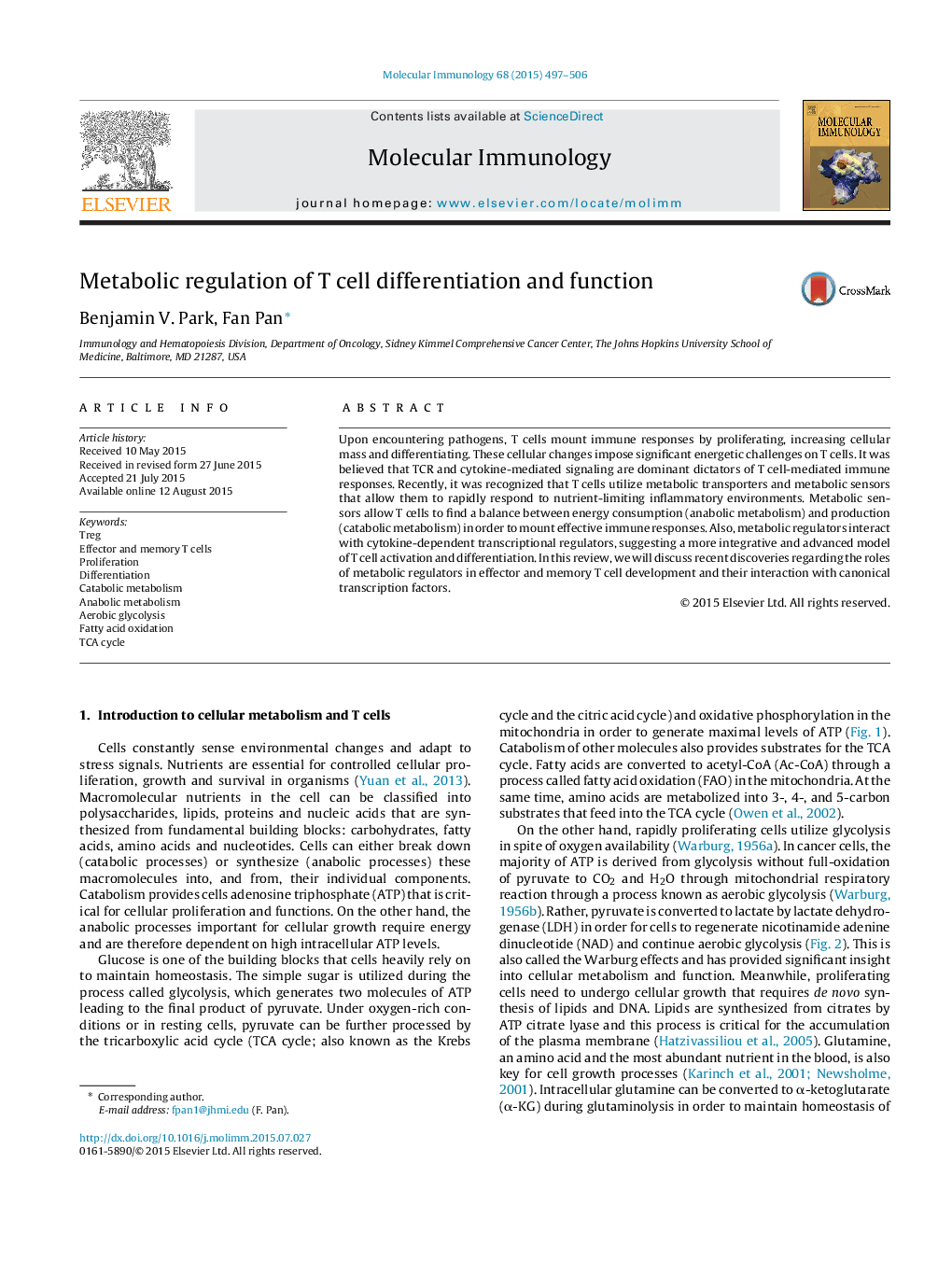| Article ID | Journal | Published Year | Pages | File Type |
|---|---|---|---|---|
| 2830665 | Molecular Immunology | 2015 | 10 Pages |
•A number of metabolic factors regulate memory and effector T cell development.•Breakthrough work characterizing the immune-metabolism link is relevant to a number of diseases.•Comprehensive understanding of immune regulation by metabolism may lead to potent new therapies.
Upon encountering pathogens, T cells mount immune responses by proliferating, increasing cellular mass and differentiating. These cellular changes impose significant energetic challenges on T cells. It was believed that TCR and cytokine-mediated signaling are dominant dictators of T cell-mediated immune responses. Recently, it was recognized that T cells utilize metabolic transporters and metabolic sensors that allow them to rapidly respond to nutrient-limiting inflammatory environments. Metabolic sensors allow T cells to find a balance between energy consumption (anabolic metabolism) and production (catabolic metabolism) in order to mount effective immune responses. Also, metabolic regulators interact with cytokine-dependent transcriptional regulators, suggesting a more integrative and advanced model of T cell activation and differentiation. In this review, we will discuss recent discoveries regarding the roles of metabolic regulators in effector and memory T cell development and their interaction with canonical transcription factors.
